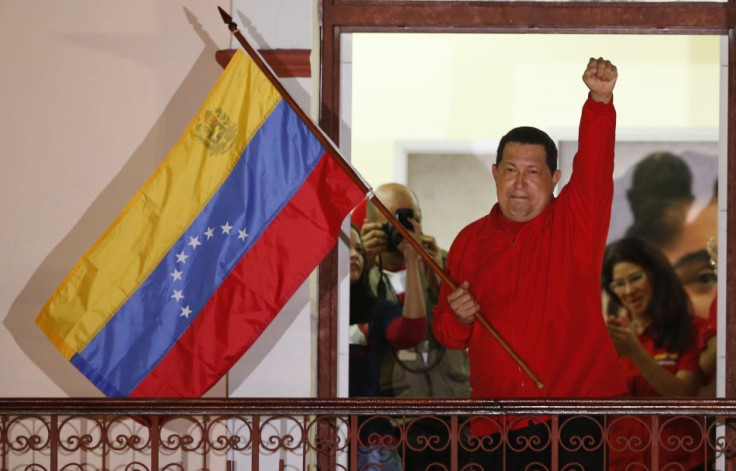Hugo Chavez to Rule Venezuela for Fourth Term [VIDEO]

Hugo Chavez is to rule Venezuela for a fourth time after defeating opposition leader Henrique Capriles to win the country's presidential election.
According to the electoral council results, Chavez secured 54.42 percent while Capriles got 44.97 percent, prompting noisy celebrations from the President's supporters.
"Thank you, my God. Thanks to everyone. Thanks my beloved people!!! Viva Venezuela!!!! Viva Bolivar!!!!!" Chavez tweeted immediately after the results.
More than 80 percent of Venezuelans voted in the fiercely contested elections. Some of the 19 million registered voters had queued up outside polling booths for several hours to cast their votes. The official closing time was also extended for the public to ensure maximum turnout.
The six-year re-election will extend Chavez's rule in the Latin American country to two decades.
"I'm celebrating with a big heart. Chavez is the hope of the people and of Latin America," 62-year-old supporter Mary Reina told Reuters.
While jubilant Chavez supporters lit the sky with fireworks, many of Capriles' enthusiasts were reported to be in tears over his defeat. It was widely thought that the Justice First candidate had the best chance of ousting Chavez since he came to power in 1998.
Congratulating Chavez, Capriles said: "I want to congratulate the candidate, the president of the republic. We have planted many seeds across Venezuela and I know that these seeds are going to produce many trees."
Although Chavez enjoys a near demigod status in the country, the recent elections had been marred by scandals and accusations with opponents accusing him of eliminating anti-government activists.
Not long ago, Chavez was diagnosed with cancer from which, he says, he has fully recovered.
His winning margin has also been consistently declining from previous elections: it was 26 percent in 2006 and 16 percent in 1998. Political analysts suggest this indicates an undercurrent of growing anger among Venezuelans over day to day affairs. Chavez's policies in the coming weeks may seek to address such grievances.
© Copyright IBTimes 2025. All rights reserved.






















